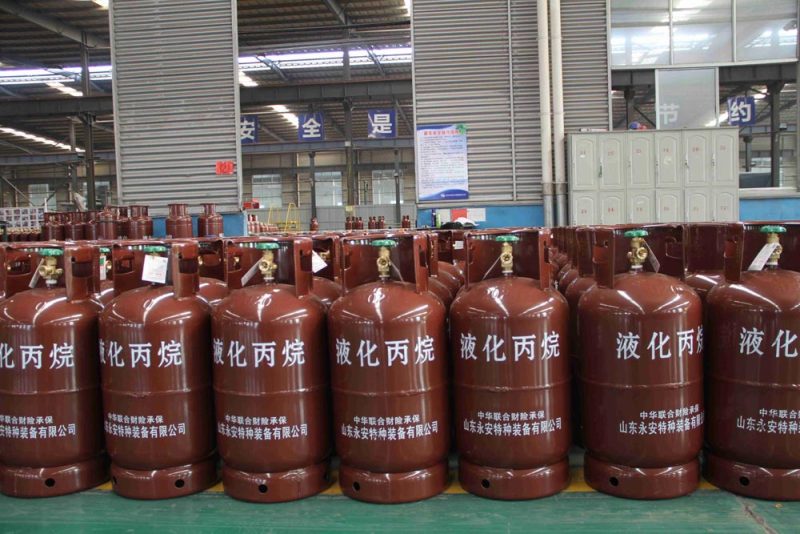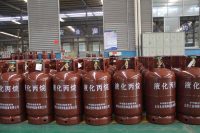
50kg New Home Types Of Welded Cylinder Propane Cylinder
Propane cylinders, also known as propane cylinders, are containers used for storing, transporting, and using propane gas. It is widely used in fields such as personal homes, industry, commerce, and agriculture, and is an important tool for storing propane.
- YA
- Shandong Province, China
- About 20 days after receive orders
- 300000pcs per month
- Information
- Video
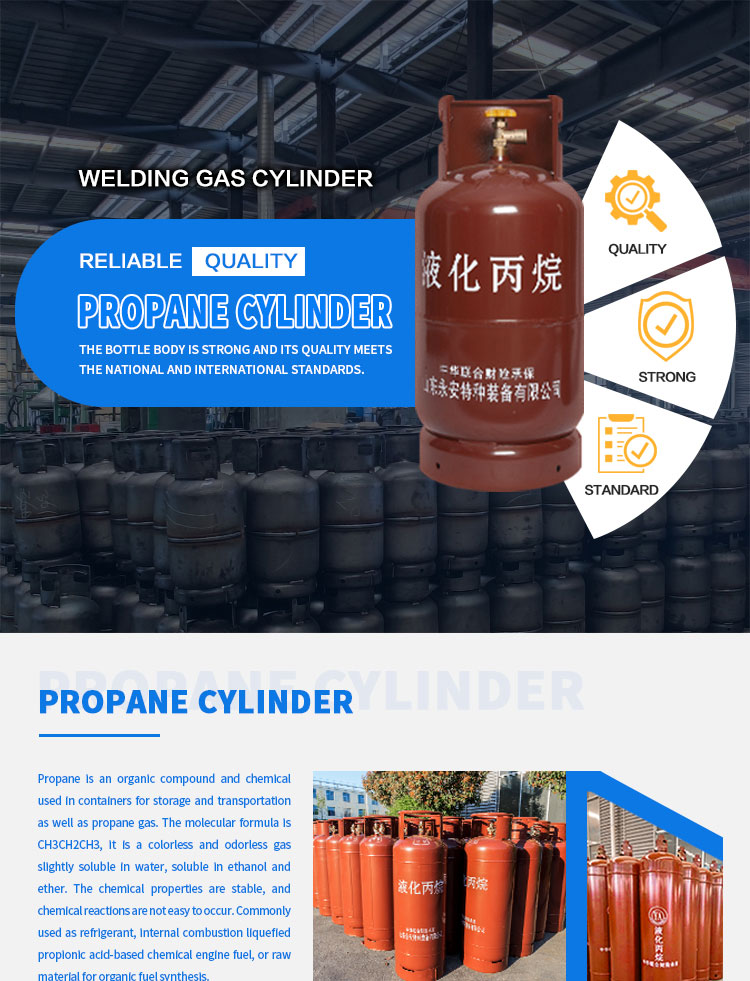

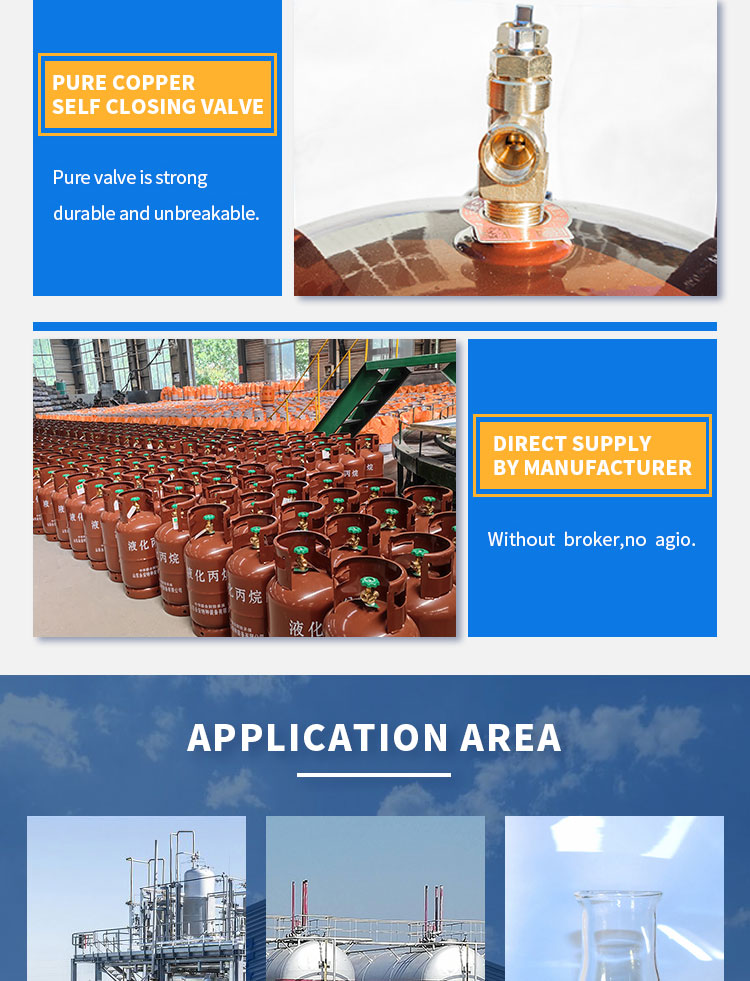
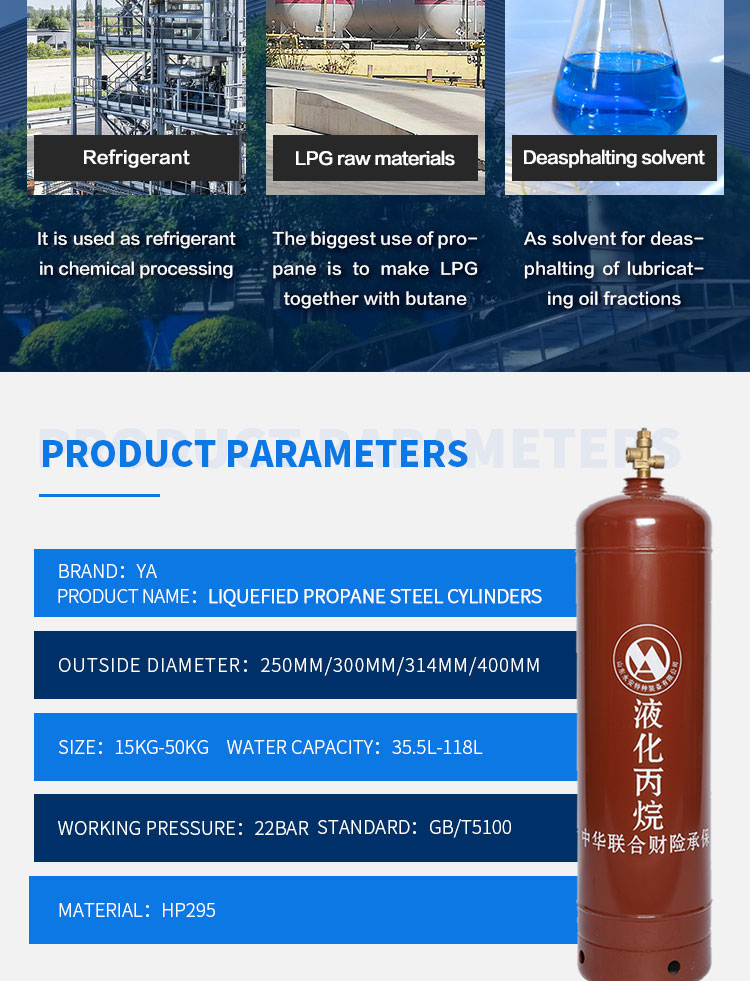

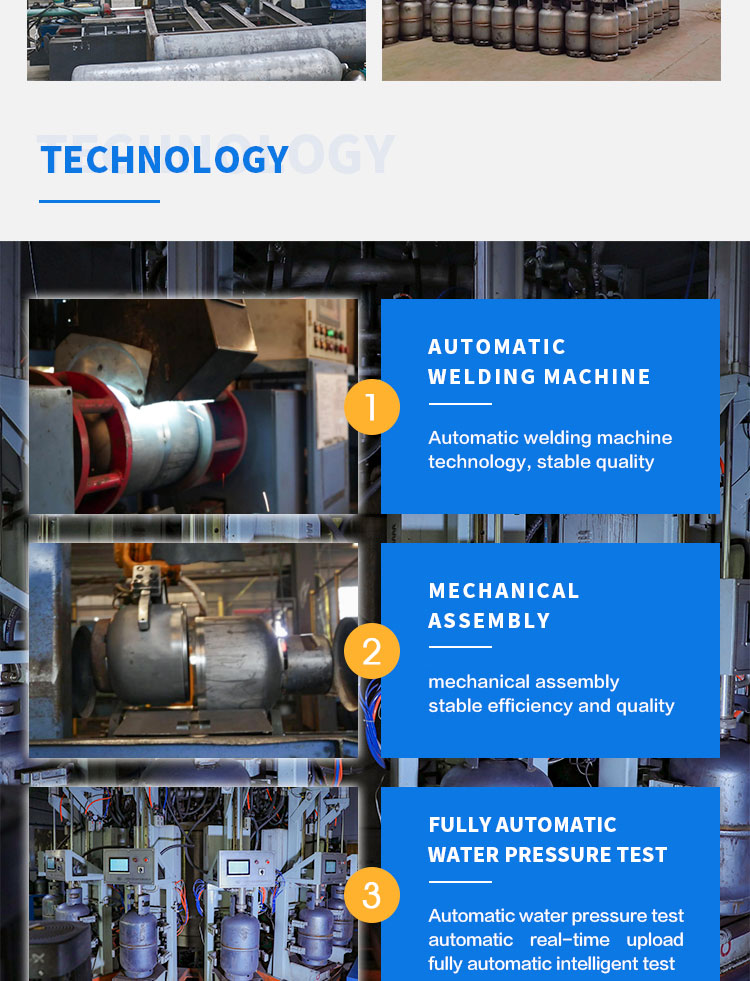


Propane is an organic compound with a chemical formula of CH3CH2CH3. It is a colorless and odorless gas. It is slightly soluble in water, soluble in ethanol and ether. It has stable chemical properties and is not prone to chemical reactions. It is often used as a refrigerant, internal combustion engine fuel or organic Synthetic raw materials.
The use of propane
① The biggest use of propane is to make liquefied petroleum gas together with butane, which is mainly used as fuel.
②Propane is an important raw material for cracking ethylene.
③Propane catalytic dehydrogenation to propylene technology has been industrialized.
④ Propane vapor phase nitration to produce mixed nitro compounds: 1-nitropropane and 2-nitropropane, nitroethane and nitromethane. Nitropropane is a good solvent for vinyl and epoxy resins. Nitromethane is used as a racing fuel filler.
⑤Propane can be oxidized to produce propylene oxide, and the by-products are methanol, formaldehyde, acetaldehyde and acetic acid, but the separation is very troublesome and has not been popularized.
⑥ Widely used as refrigerant in oil refining, chemical and natural gas processing operations.
⑦ Used as a deasphalting solvent for lubricating oil fractions. Asphalt is insoluble in liquid propane. When extracting with propane, asphalt is removed as an extraction residue, and then propane is evaporated from the asphalt-removed fraction to leave lubricating oil .
⑧ Dewaxing solvent: almost insoluble in liquefied propane. When liquid propane evaporates, about 418680kJ/kg heat of evaporation can be obtained. Using these two characteristics, part of the propane is evaporated from the lubricating oil propane solution, and the resulting low temperature precipitates the wax in the raw oil, and dewaxes by self-cooling method.
⑨ Chlorination of propane can give perchlorethylene and carbon tetrachloride.
⑩ A new method for producing acrylonitrile from propane has been developed.

